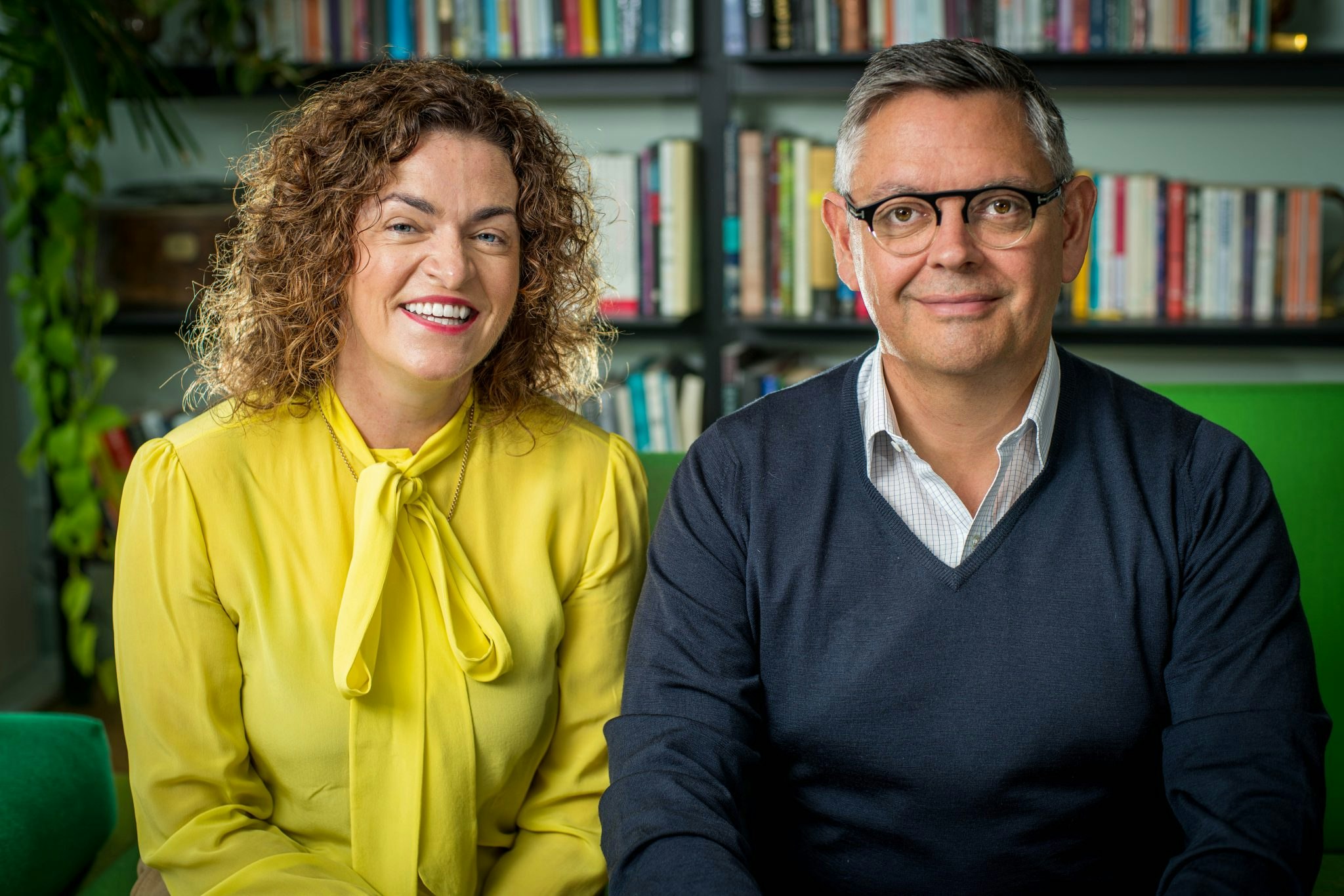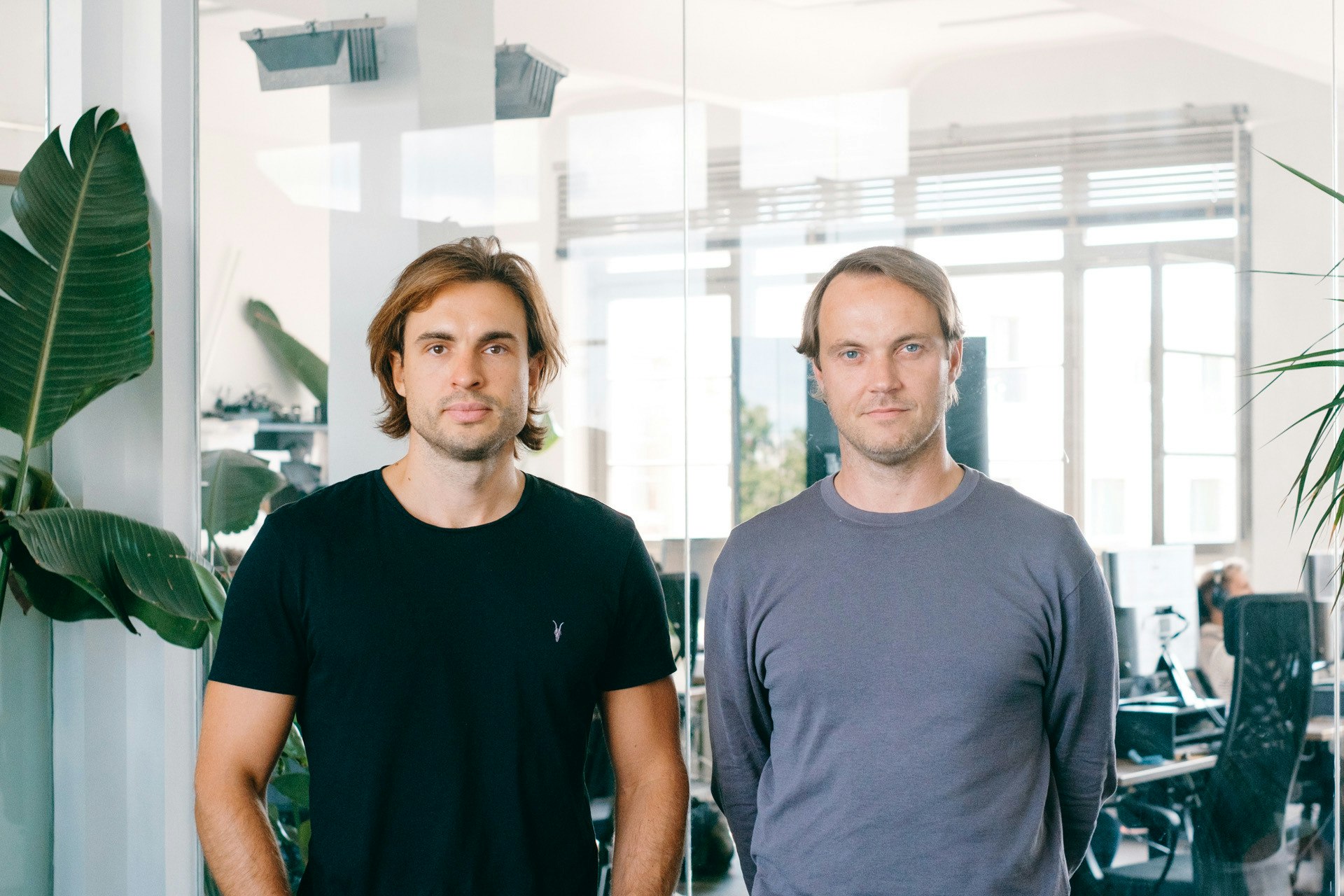The global economy remains reliant on fossil fuels. EU data shows that 70% of the gross available energy sources on the continent are fossil fuels; and while that share is decreasing year-on-year, more needs to be done to shift to more sustainable products.
Biofuels have long offered a potential solution to this problem. Derived from more naturally abundant and renewable resources, they produce significantly less CO2 compared to mineral petrol or diesel.
However, there remains some scepticism around whether mass production of these fuels could have a substantial effect on the climate fight, as the growing of crops for fuel production could lead to deforestation, or take up land needed for crop production.
Using feedstock — the material used to produce the fuel — deriving from waste, or that would be unusable in other ways, is therefore integral to creating a sustainable and scalable biofuel.
Startups like Kvasir Technologies and BEE Biofuel, both finalists in this year’s New Energy Challenge, an annual competition that connects startups in the energy sector to stakeholders that can expedite the decarbonisation of consumption, are leading the charge on biofuels. This is what they are betting on — and the hurdles that stand in the way.
Turning waste into fuel
Kvasir Technologies, a Danish startup founded in 2018, uses non-edible biomass or pure lignin (an organic polymer) to produce a bio oil which it is selling into the commercial maritime industry.
Biofuels are of extreme significance in the fight against climate change, the core reason being that some petrochemical products are irreplaceable for us to continue our modern lives
“The biomass that we use in our technology process is residual materials. It's biomass waste. We basically use materials that would otherwise just lie in a field,” says Susanne Tolstrup, Kvasir Technologies’ head of communications and public affairs.
“This material is abundantly available and isn’t something competing with the food chain. That is important to us.”
BEE Biofuel, a company based in Namibia’s capital, Windhoek, is approaching this feedstock in a different fashion. It collects used cooking oils from local businesses, converting this common waste product into a biodiesel. The fuel is then used to power the company’s collection vehicles, and make products including wood treatment and instant firelighters.
Summer Sylvester, a chemist at BEE Biofuel, says that the improper disposal of these oils is a common issue in Namibia and that it has an impact on both the environment and public health: “Once cooking oil is used a certain number of times it becomes carcinogenic [having the potential to cause cancer].”
“Many businesses are giving this oil to their employees not knowing how harmful it can be to their health,” she says. “Otherwise, it ends up in landfills and it becomes a problem for the cities and municipalities. If it’s burned in the landfills, it can produce a noxious gas.”
Jasper Warmenhoven, head of scouting at the Dutch startup accelerator, and NEC partner, Unknown Group, adds that finding sustainable biofuels like these is essential.
“Biofuels are of extreme significance in the fight against climate change, the core reason being that some petrochemical products are irreplaceable for us to continue our modern lives,” he says. “A good example of this are high-performance plastics used for medical devices, semiconductors and cars; these plastics are desperately needed and can be produced using biofuels.”
A greener future for the shipping industry
Kvasir Technologies is specifically trying to positively affect the commercial maritime industry.
We're mostly working with research institutions and, of course, our future customers, the commercial players in the sector
A 2021 study by the International Maritime Organisation found that the sector contributes 3% of global greenhouse gas emissions. That number is set to increase, as 80% of merchandise is transported via sea.
To mitigate the impact of the industry, the IMO has set a goal of reducing its emissions by at least 40% by the end of this decade, and by 50% by 2050. Kvasir Technologies’ product offers a smoother transition for shipping companies as they work towards that goal.
“It can either be used as a blend-in or it can be used as a complete replacement,” says Tolstrup. “You can use it in existing engines in an existing infrastructure. That's why we say ‘change the fuel, not the engine’. And obviously, there are a lot of advantages from that — mainly that you don't have to invest in new engines or fuelling infrastructure.”
Tolstrup says that Kvasir Technologies has worked closely with industry and research institutions to develop the product and understands the hurdles in spreading adoption. Cofounder Anders Bak Kristoffersen comes from a background in the maritime industry.
“We're mostly working with research institutions and, of course, our future customers, the commercial players in the sector. They are the ones looking for greener alternatives and they currently lack commercially viable, scalable and energy-dense liquid fuel alternatives,” he says.
“They're quite hungry to find new and alternative solutions. And obviously, we need to work with them to optimise our technology. When you start something from scratch and you develop new technologies you need to work with the sectors directly.”
The path to mass adoption
Working with small businesses in their home city, BEE Biofuel has found it harder to find widespread adoption. The company has teamed up with the local government in Windhoek to try and change behaviours.
“In order to run your business in Windhoek, you need to have certain criteria of fitness,” says Sylvester. “One of the benchmarks is around waste disposal. Some of the businesses have started to really take us by the hand, and see the benefits of recycling with us.”
The markets are desperately in demand for fuel like ours already today. Particularly the hardest-to-abate sectors like, for example, the marine sector, but also aviation
Sylvester says that BEE Biofuel is passionate about boosting the local economy, removing Namibia’s reliance on importing expensive mineral diesel and fuel from abroad. According to the OEC, refined petroleum was the country’s fifth-largest import in 2021.
“Petrol and diesel prices just keep on going up,” she says. “Hopefully this will provide people the incentive to look at our product, to run their generators or their agricultural vehicles off of it.”
While that is the aim, Sylvester admits that a lack of familiarity, and a perception of a lack of quality compared to fossil fuels, remains an issue in Namibia. The company also struggles to find enough feedstock to scale up production. BEE has the capability to produce 20k litres per day, but is generally running production once every three weeks.
“We can’t directly control the quantity or quality of stock we receive,” says Sylvester. “Some of the oil we receive is really poor quality.”
Tolstrup also highlights the difficulty in scaling up production; however, it is more to meet the massive demands of their target market. The IMO estimates that commercial shipping uses 3.3 megatonnes of fuel per annum.
“The biggest challenge is the speed by which it's possible to scale. We aim for commercial production facilities in about two years,” says Tolstrup. “The markets are desperately in demand for fuel like ours already today. Particularly the hardest-to-abate sectors like, for example, the marine sector, but also aviation.”
Warmenhoven adds that the high cost of these fuels, due to the lack of supply, and proving the environmental credentials of the products are also stumbling blocks.
“At the moment, biofuels simply are more expensive than fossil alternatives, making it difficult for people and industries to adopt,” he says. “Verifying that a fuel came from a bio and not a fossil source is still a challenge to this day. This, of course, limits adoption as it is difficult to trust.”
Despite these issues, the potential for biofuels to make a major contribution to the climate fight make it a growth industry. Sylvester believes that changing attitudes in her home country, and beyond, will increase demand.
“People are becoming more environmentally conscious. They are also becoming more frustrated with inflation. The more the price of diesel goes up, the more seriously they will look for alternatives.”



